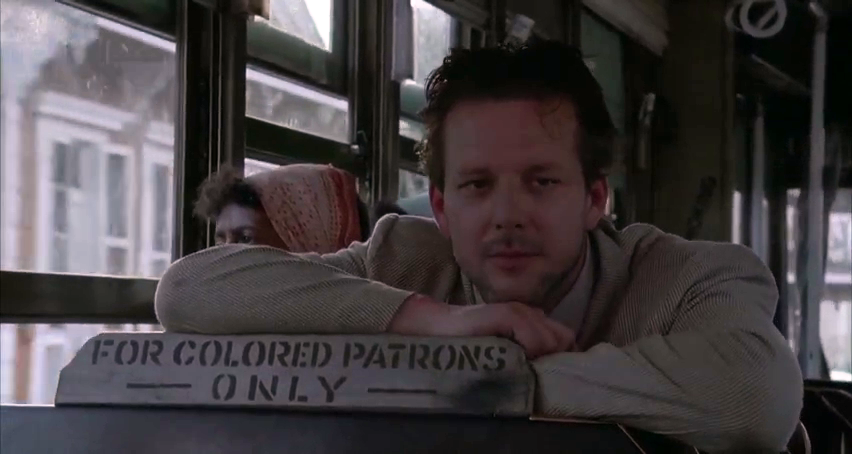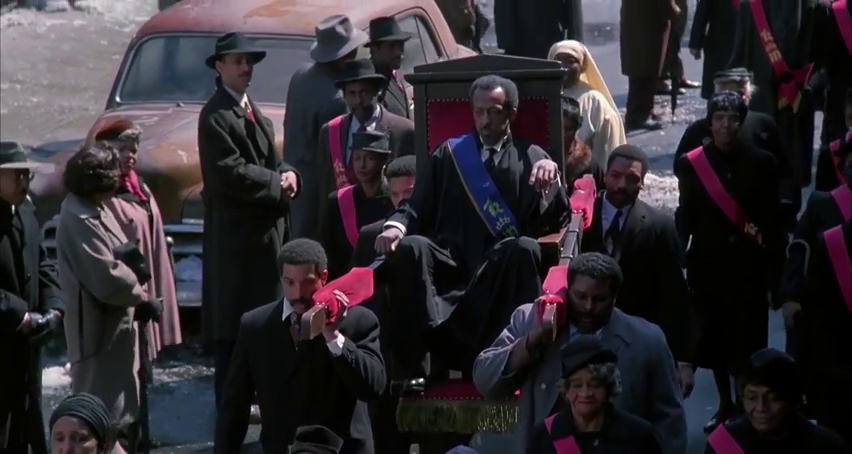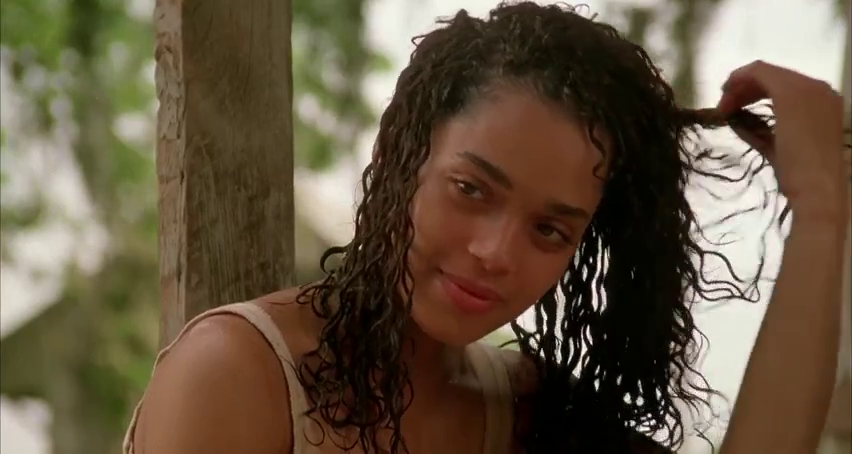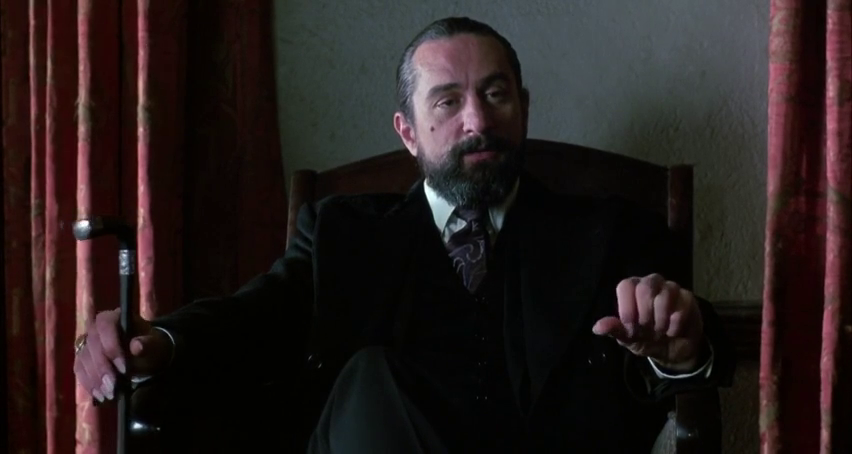
One of those fortuitous coincidences happened a while back when I attended a lecture by African American professor Jennifer Susanne Leath, “Maât: Prototypical Womanism for Contemporary Justice Work” (CEDEJ, 9 July 2024). This reference to the ancient Egyptian goddess of justice automatically recalled my review of Sheshet (the daughter of Maât), something Dr. Leah was quite happy about.
By Emad Aysha
But it also brought back, disturbingly, the still-fresh memory of a classic thriller I finally got around to watching, Alan Parker’s Angel Heart (1987). It stars the once great Mickey Rourke as Harry Angel, a small-time private investigator in 1955 Brooklyn, hired by Louis Cyphre (Robert De Niro) to track down Johnny Favorite, a white jazz singer who mysteriously disappeared 12 years ago.
The pairing is a delicious study in contrasts. De Niro’s character, always dressed elegantly in black, hardly moves a muscle, whereas Rourke can’t sit or stand still, is always dishevelled and dresses in light colours. For some reason, holy places, even the Bibles, are always lined with blood red here. When Angel snoops around a Harlem church (where Cyphre hired him), he finds a pagan altar.
When he heads down south, hot on the trail of Johnny Favorite, he finds voodoo and African pagan religions among the black people. The white people, by contrast, profess salvation (Baptism scenes) for the poor, while the rich worship Satan in secret to hold onto their power and privilege.
At least the blacks are trying to maintain their identity and not hurting anybody, seeing Christianity as a white man’s religion forced on them. The black priest you see up north is ferried around like a Roman emperor; the church is the traditional body representing the black community.

REDRUM: More than religion is afoot in this post-war thriller that recollects pre-war social wounds that just won't heal.
You can see the links to Maât, the African religious component of American identity that’s hypocritically swept under the carpet. The movie is almost a documentary in a thriller format, allowing the viewer to piece together a picture of a forgotten past that sorely needs to be remembered.
The America portrayed here is ugly and beautiful, with urban grime and filth juxtaposed with gorgeous landscapes, cloud formations, and sunsets. The continual intrigue, half-answered questions, and misdirection contribute to the expert pacing.
The dialogue is snappy and cynical, the performances are deep and natural, the characters are nuanced and a mystery even to themselves, and the music is subjective and atmospheric while also understated. That stops it from becoming a parade of lifeless facts and helps you feel the way the world was back then.
The country had come out of the War era, supposedly united, but black people were still left in the lurch. Hence, Johnny Favorite’s secret black love, whom he stilted, begetting the fragile but seductive Epiphany Proudfoot – Lisa Bonet from The Cosby Show. (Angel’s relationship with her is mentor-like and innocent, almost ‘fatherly’!)

PAGAN PRIDE: Lisa Bonet, the tragic fulcrum of a story of very rightly forbidden love.
Of course, music was how blacks could fight back and find their authentic voice. How ironic then that Johnny Favorite is a white jazzman like no other. That would also explain all the small or sacrificial animals in the story, most notably chickens and cats, rats, crabs, and horses.
Note the scene where Epiphany looks at a bathtub as if it’s the first time she’s ever seen one. There’s also a wartime hint about buying US bonds, implying that poor white folk are victims of a cold and ruthless system that deserted them in the aftermath. (Social ‘justice’ anyone?)
Again, the movie is about that brief twilight era, calling for solidarity between equally oppressed peoples. Hence, Angel and Mr Favorite having ‘brief’ spouts of amnesia during the war. But, true to form, it takes a British director to remind Americans of their not-too-distant past.
I wish the movie had a refreshing ending where morality beats memory, but sadly, society's judgementalism gets the excellent guy in the end. That’s why Cyphre frames Angel for murder, stealing his gun and the dog tags to kill Epiphany in the most unwholesome way possible. (This felt like revenge since she’s his gal only, impregnated by the winds, in Zeus-type fashion.)
Selling your soul to the devil to become a jazz or blues player is a common theme in America, explored in Crossroads (1986). But that’s what you have to do to get ahead in a racist country—all the more reason for religious reconciliation between blacks and whites.
Angel, while a sleazy detective, is an okay guy. He is the quintessential antihero who functions as a mirror to a genuinely corrupt society, from lazy cops to bent doctors. He is angel-hearted, open, and honest about his flaws. He has his loves but doesn’t commit, but he is happy when an ex-girlfriend finds her Mr Right.
Mickey Rourke was a good pick. He was the sweet boy on screen in his early days, not least in 9½ Weeks (1986). De Niro speaks for himself, resembling a puppet master with claw-like nails. He also has a European sensibility, whereas Angel can’t even spell Cyphre correctly.

PATRON POLITICS: Robert De Niro in the role of many lifetimes. How little has changed in this depiction of America.
Note also that Johnny Favorite’s original name is German. America has constantly uprooted itself, but Europe’s old problems keep haunting it. You could easily imagine Cyphre determining who becomes president, with all the racism and sectarianism in the country’s latest electoral phase.
Greed and divisions invite the devil in. Time people re-watched that other Alan Parker classic, Mississippi Burning (1988). How ironic that he’s just as two-faced and dualistic as the people he catalogues in his movies, with the racist and wildly inaccurate Midnight Express (1978).
To paraphrase the movie, there’s just enough religion in the world for people to hate each other but not quite enough to make people love each other. That’s one post-war American lesson we shouldn’t forget!






